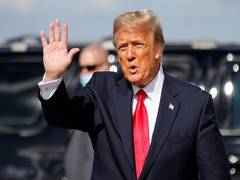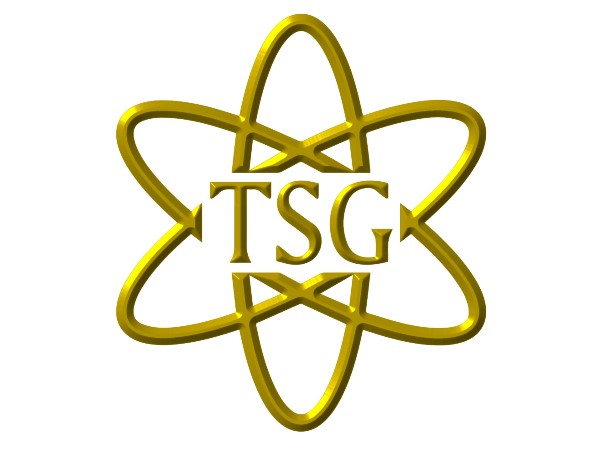
Trump charged in US special counsel probe in efforts to overturn 2020 election
Aug 02, 2023
Washington [US], August 2: Donald Trump was indicted on Tuesday for his wide-ranging efforts to overturn the 2020 election, the third time in four months that the former U.S. president has been criminally charged even as he campaigns to regain the presidency next year.
The four-count indictment alleges Trump conspired to defraud the U.S. by preventing Congress from certifying President Joe Biden's victory and to deprive voters of their right to a fair election.
Trump was ordered to make an initial appearance in Washington federal court on Thursday.
The charges stem from Special Counsel Jack Smith's investigation into allegations Trump - the front-runner for the 2024 Republican presidential nomination - sought to reverse his loss to Biden, his Democratic rival.
In the 45-page court document, prosecutors allege a coordinated conspiracy across multiple states, in which Trump and his allies advanced claims of fraud they knew to be untrue in a desperate attempt to undermine American democracy and cling to power.
After a fiery Trump speech, his supporters attacked the U.S. Capitol on Jan. 6, 2021, in a bid to stop Congress from certifying Biden's victory.
In a brief statement to reporters, Smith placed the blame for the Jan. 6 attack squarely on Trump's shoulders.
"The attack on our nation's capitol on Jan. 6th, 2021, was an unprecedented assault on the seat of American democracy. As described in the indictment, it was fueled by lies - lies by the defendant, targeted at obstructing the bedrock function of the U.S. government," Smith said.
Trump and others organized fraudulent slates of electors in seven states, all of which he lost, to submit their votes to be counted and certified as official by Congress on Jan. 6, the indictment said.
The indictment lays out numerous examples of Trump's election falsehoods and notes that close advisers, including senior intelligence officials, told him repeatedly that the election results were legitimate.
"These claims were false, and the defendant knew that they were false," prosecutors wrote.
When the push to certify the fake electors failed, Trump sought to pressure Vice President Mike Pence not to allow the certification of the election to go forward, and took advantage of the violence outside the Capitol to do so, according to prosecutors. During the violence, Trump rebuffed calls from his advisers to issue a calming message.
"The Defendant attempted to use a crowd of supporters that he had gathered in Washington, D.C. to pressure the Vice President to fraudulently alter the election results," the indictment reads.
In a statement, the Trump campaign said he had always followed the law and characterized the indictment as a political "persecution" reminiscent of Nazi Germany.
The indictment alleges Trump conspired with six other unnamed individuals. The description of one appeared to match former Justice Department official Jeffrey Clark, the former head of the civil division who tried to get himself installed as attorney general so he could launch voter fraud investigations in Georgia and other swing states.
Another alleged co-conspirator appeared to describe attorney John Eastman, who erroneously suggested that Pence could object to certifying the electoral results. Both Eastman and Clark had their phones seized and searched in the investigation last year.
The indictment also appears to refer to Trump's personal lawyer, former New York City Mayor Rudy Giuliani, as someone who was willing to pursue a legal strategy that Trump's campaign lawyers would not.
None of the three men immediately responded to requests for comment.
MOUNTING LEGAL WOES
Trump already had become the first former U.S. president to face criminal charges. He has sought to portray the prosecutions as part of a politically motivated witch hunt.
Tuesday's charges represent a second round of federal charges by Smith, who was appointed a special counsel in November by U.S. Attorney General Merrick Garland.
Trump pleaded not guilty after a federal grand jury in Miami convened by the special counsel charged him in June in a 37-count indictment over his unlawful retention of classified government documents after leaving office in 2021 and obstructing justice. Prosecutors accused him of risking some of the most sensitive U.S. national security secrets.
Last Thursday, prosecutors added three more criminal counts against Trump, bringing the total to 40, accusing him of ordering employees to delete security videos as he was under investigation for retaining the documents.
The first charges brought against Trump emerged in March when a grand jury convened by Manhattan's district attorney indicted him. Trump in April pleaded not guilty to 34 felony counts accusing him of falsifying business records concerning a payment to porn star Stormy Daniels to buy her silence before the 2016 election about a sexual encounter she said she had with him. Trump has denied the encounter.
Trump, 77, leads a crowded field of Republican presidential candidates as he seeks a rematch with Biden, 80, next year. Biden in April launched his re-election campaign.
Trump, who served as president from 2017 to 2021, has shown an ability to survive legal troubles, political controversies and personal behavior that might sink other politicians. Many Republicans - elected officials and voters - have rallied behind Trump, portraying the charges against him as selective prosecution and a Democratic plot to destroy him politically.
Florida Governor Ron DeSantis, Trump's leading rival for the Republican nomination, said on X, the site formerly known as Twitter, that he had yet to read the indictment. But he vowed to "end the weaponization of the federal government" and argued that Trump should have the right to stand trial in his home state of Florida, rather than Washington.
Strategists said that while the indictments could help Trump solidify support within his base and win the Republican nomination, his ability to capitalize on them may be more limited in next year's general election, when he will have to win over more skeptical moderate Republicans and independents.
Meanwhile, Trump's legal woes are growing. In addition to the three indictments, Trump faces a fourth criminal investigation by a county prosecutor in Georgia into accusations he sought to undo his 2020 election loss in that state.
Fulton County District Attorney Fani Willis has indicated she plans to bring charges in that case within the next three weeks.
Special counsels are sometimes appointed to investigate politically sensitive cases and they do their jobs with a degree of independence from the Justice Department leadership.
Before being appointed by Garland to take over the two Trump-related investigations, Smith had served as the chief prosecutor for the special court in The Hague, tasked with prosecuting war crimes in Kosovo, oversaw the Justice Department's public integrity section and worked as a federal and state prosecutor in New York.
Source: Fijian Broadcasting Cooperation









